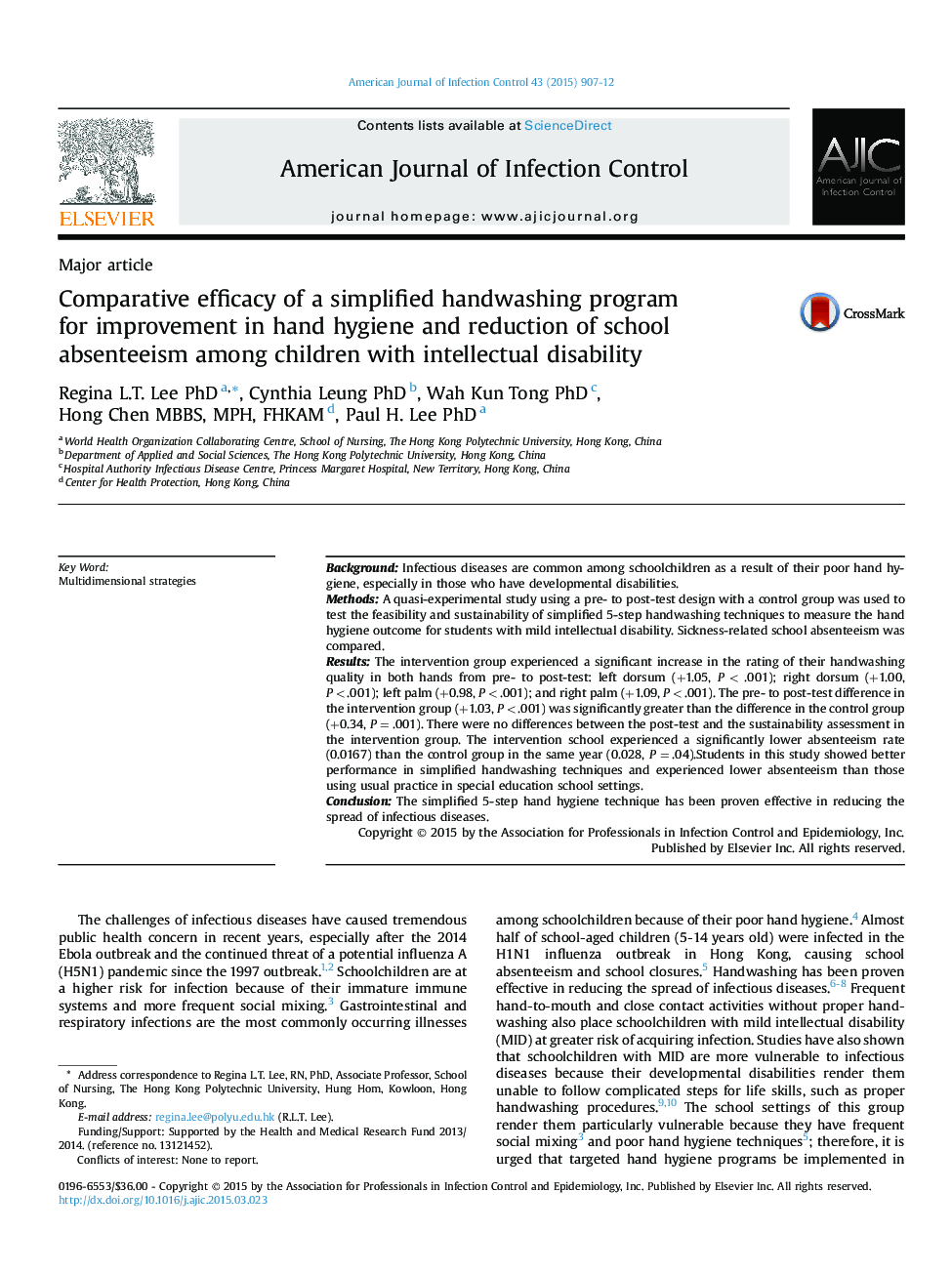| Article ID | Journal | Published Year | Pages | File Type |
|---|---|---|---|---|
| 2636712 | American Journal of Infection Control | 2015 | 6 Pages |
•Evidence-based simplified handwashing program to prevent infectious diseases.•Social learning factors contribute to the improvement of handwashing quality.•Multimedia promotes handwashing techniques for children with special needs.•Efficacy of primary health care is shown through a simplified handwashing program.•Fluorescent stain rating test is used to assess handwashing quality.
BackgroundInfectious diseases are common among schoolchildren as a result of their poor hand hygiene, especially in those who have developmental disabilities.MethodsA quasi-experimental study using a pre- to post-test design with a control group was used to test the feasibility and sustainability of simplified 5-step handwashing techniques to measure the hand hygiene outcome for students with mild intellectual disability. Sickness-related school absenteeism was compared.ResultsThe intervention group experienced a significant increase in the rating of their handwashing quality in both hands from pre- to post-test: left dorsum (+1.05, P < .001); right dorsum (+1.00, P < .001); left palm (+0.98, P < .001); and right palm (+1.09, P < .001). The pre- to post-test difference in the intervention group (+1.03, P < .001) was significantly greater than the difference in the control group (+0.34, P = .001). There were no differences between the post-test and the sustainability assessment in the intervention group. The intervention school experienced a significantly lower absenteeism rate (0.0167) than the control group in the same year (0.028, P = .04).Students in this study showed better performance in simplified handwashing techniques and experienced lower absenteeism than those using usual practice in special education school settings.ConclusionThe simplified 5-step hand hygiene technique has been proven effective in reducing the spread of infectious diseases.
